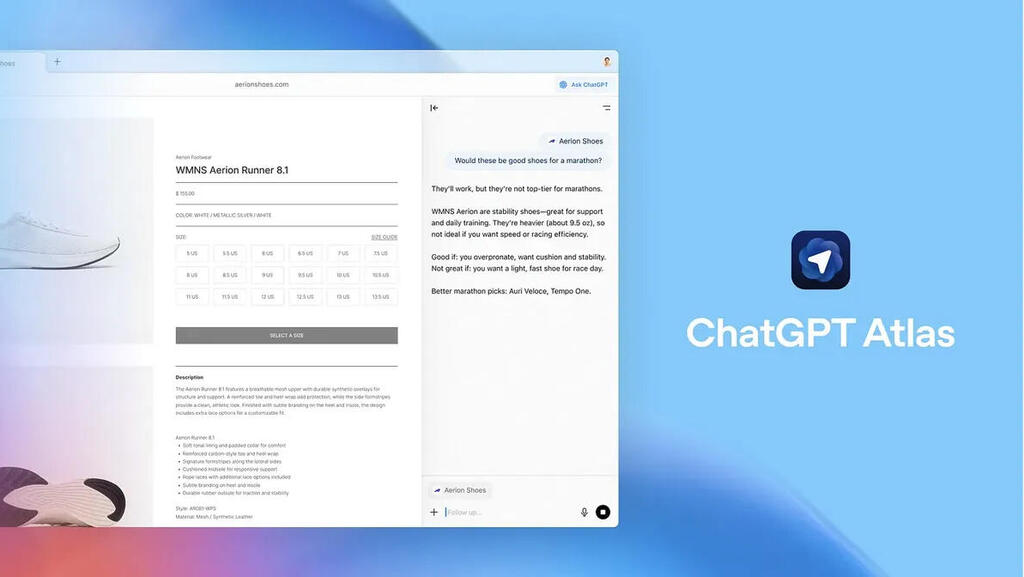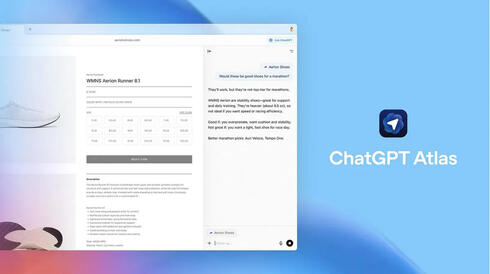
ChatGPT Atlas: OpenAI’s boldest move yet against Google’s web empire
The AI firm hopes to turn its 800 million users into a weapon in the browser wars.
OpenAI has entered one of the internet’s most entrenched markets, the web browser, with the launch of ChatGPT Atlas, a product designed to bring its generative AI assistant into the center of online activity. The move marks a direct challenge to Google Chrome’s dominance and signals OpenAI’s ambition to reshape how people interact with the web.
The browser, revealed Tuesday, extends the reach of ChatGPT, already used by an estimated 800 million people each week, into a tool capable of performing full web tasks, from summarizing pages to shopping autonomously.
Unlike traditional browsers optimized for search queries and links, Atlas is designed around dialogue. Its built-in ChatGPT sidebar can summarize web pages, compare products, and interpret data from any site. For paying users, an “agent mode” goes further, allowing ChatGPT to interact directly with websites and complete tasks end-to-end.
During a demonstration, OpenAI engineers showed ChatGPT locating an online recipe, navigating to Instacart, and purchasing all the ingredients, a process that unfolded without human intervention. That ability to act rather than merely assist could foreshadow a new kind of “autonomous browsing,” in which the user’s intent replaces manual clicks.
Since ChatGPT’s debut in late 2022, Google has scrambled to defend its core business, integrating its Gemini AI model into Chrome and search results. Users can now view “AI overviews” alongside conventional links, a move meant to mirror the conversational experiences driving traffic toward ChatGPT and rival startups such as Anthropic.
Yet the rise of AI-driven search has opened vulnerabilities. While Chrome remains the world’s dominant browser, holding nearly 72% market share, according to StatCounter, analysts say OpenAI’s foray could mark the first credible threat to that supremacy in years.
“Integrating chat into a browser is a precursor for OpenAI starting to sell ads, which it hasn’t done so far,” Gil Luria, an analyst at D.A. Davidson, told Reuters. “Once OpenAI starts selling ads, it could take away a significant part of search advertising share from Google, which currently holds around 90% of that market.”
Related articles:
Atlas joins a growing list of AI-powered browsers, including Perplexity’s Comet, Brave, and Opera’s Neon, all racing to combine automation, summarization, and code-generation tools.
The browser will initially be available on Apple’s macOS, with versions for Windows, iOS, and Android slated for release later. OpenAI’s expansion into browsers follows a string of efforts to transform ChatGPT from a standalone chatbot into a full digital ecosystem, one capable of performing work, gathering information, and eventually, driving revenue.
OpenAI’s launch comes on the heels of a legal win for Google: a September ruling by U.S. District Judge Amit Mehta allowed the company to keep promoting its search engine through payments to partners, despite antitrust concerns. The judge noted that the growing influence of AI-powered alternatives made such arrangements less monopolistic than in years past.
Still, as OpenAI and its rivals push conversational interfaces deeper into the web experience, Google faces a structural challenge, not just to its products, but to the advertising model that underpins them.
Reuters contributed to this report.
